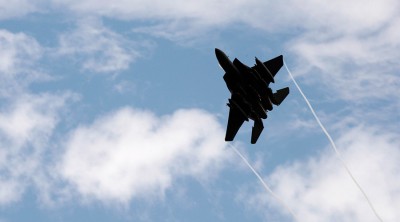Who is Protecting the Drug Trade? Afghan Officials Blame NATO after Eleven anti-Drug Police Officers Killed in Airstrike

A US-led coalition airstrike killed 11 Afghan anti-drug police officers in southern Afghanistan, the Interior Ministry said Monday. Amid conflicting reports, NATO has denied responsibility.
The airstrike hit the unstable, opium-rich province of Helmand on Sunday, AFP cited officials as saying. “Eleven counter-narcotics police were killed and four others were wounded in an airstrike carried out by international forces in the Garmsir district of Helmand province,” deputy Interior Ministry spokesman Najib Danish said.
The statement comes amid conflicting reports over who was behind the attack. According to the Afghan Interior Ministry spokesman, the airstrike was ordered against drug smugglers and carried out by NATO forces.
Friendly fire: Up to 10 Afghan soldiers killed in US airstrike http://t.co/iq7dkzX9H3 pic.twitter.com/pScXdkkdHu
— RT America (@RT_America) July 21, 2015
NATO denied the officers were killed in one of its airstrikes. A spokesman said there were no NATO-led airstrikes in Helmand province, but added that there was one in the neighboring Kandahar province to “eliminate threats to the force.”
While Afghan air forces also have the capacity for airstrikes, no comment was issued on their behalf.
The provincial police department provided a higher death toll, saying that 14 bodies had been recovered from the site of the airstrike. Unconfirmed media reports put the number of casualties at over 20.
Meanwhile in Afghanistan…@NATO airstrike ‘accidentally’ kills 5 Afghan soldiers http://t.co/pbfFic7R5I
— RT (@RT_com) March 6, 2014
Helmand is known for its volatility and its international opium trade. It has been one of the central areas for the 14-year Taliban insurgency, which followed the US-led invasion.
Friendly fire deaths have been on a rise in NATO’s Afghan campaign, leading to public criticism. In July, up to 10 Afghan soldiers were killed and four wounded in an US airstrike that hit an Afghan army outpost.
In March 2014, five Afghan soldiers died in a coalition airstrike in Logar province with another coalition bombing claiming the lives of five US soldiers, one Afghan soldier and an interpreter in southern Afghan Zabul province just three months later, the Wall Street Journal reported.
The US-led military coalition formally ended its combat mission in Afghanistan in 2014, although the US and its allies still offer support to Afghan troops in the form of airstrikes, reconnaissance and logistics. Recently, airstrikes have become more frequent amid increased fighting on the ground.
LISTEN MORE:
US President Barack Obama has postponed his plans to downsize the American forces in Afghanistan this year, instead deciding to keep the 9,800 US soldiers there until the end of 2015.

